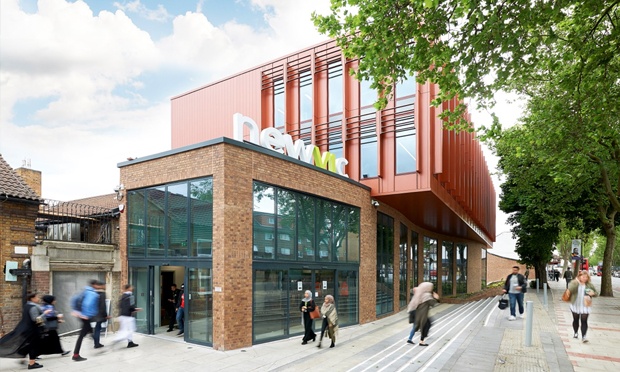On Tuesday, students from East Ham, London were invited to take part in a Parliamentary panel to discuss the impact COVID-19 has had on education. The panel included Labour MPs Stephen Timms and Wes Streeting, as well as the principals from two leading London Sixth Forms: Mandeep Gill from Newham Sixth Form College (NewVIc) and Mouhssin Ismail from Newham Collegiate Sixth Form (NCS).
The virtual event was small but lively, timed to coincide with school children returning back to the classroom. After teachers, staff and pupils have faced unique and powerful academic pressures this year, the overarching theme of the panel was that students themselves have the strength to rise to the challenge. Panelists emphasised that this cohort can and will progress successfully to the next stage of their lives.
Several Sixth Form students asked questions regarding the lasting impact of COVID-19 on their year. For example, they questioned whether they will be disadvantaged by lacking opportunities for personal statements and thereby struggling in the university admissions process, or whether they will be discriminated against by employers due to their “teacher-assessed” results.
The overall panel response to such concerns was strong. A Level grades between cohorts are never easily comparable, so this is not the only discerning point for employers, they assured. Furthermore, all current students will be in a similar place with what they can or cannot put on their personal statement due to COVID-19; both Sixth Forms reassured their students that there are resources and people in place to address this concern specifically.
For the past five years, NCS has been ranked in the top 1% for state and grammar schools, with even more impressive statistics including their innovative and admirable NCS Med School. NewVIc also has impressive, way above-average results. However, as expressed on their website, they are extremely critical of national downgrading which impacted 300 of their students in 2020.
National downgrading refers to the recent trend wherein thousands of pupils across the country receive lower than expected grades so as to prevent grade inflation. This problem felt significant last year when cancelled A Level exams, along with the government reversing its original algorithm-based policy, meant that teacher-assessed A Levels were heavily deflated. Nearly two in five teacher-assessed grades were standardised one grade down in 2020.
Naturally, downgrading has serious consequences, Gill acknowledges: it creates “phenomenal fear” for all Sixth Forms. However, both principals were clear that, despite the individual fear of deteriorating grades, worsened by loud media coverage and louder political opinions, students are stronger than downgrading and this pandemic. All commented that the generation leaving school during coronavirus will have their own story about overcoming adversity: all personal statements will be different this year and good statements always reflect hard work, attitude and subject enthusiasm.
18 June 2021 is the big date for schools across the country, representing the cut-off for teacher-assessed grades which this year will be a further complicated combination of internal exams, assessment history and professional teacher judgment. Year 12 students were pointed out as a group that would particularly benefit from being together in March with focused teaching ensuring that all students are at the same level and thereby mitigating any disparity under online learning.
This approach would naturally take time away from learning Year 13 content and both principals agreed that it is the right decision to make 2022 Exams less content-heavy. Earlier in the day, Ofqual Chief Simon Lebus told MPs that 2022 exams “would have to be adapted to reflect the learning disruption taking place.” Indeed, by then, this cohort of students will have never sat public exams due to the pandemic.
Streeting, Labour Shadow Minister for Schools, was unequivocal about education not being a “political football”, echoing an earlier answer to a student question about the media criticism he faced this summer when calling for Education Secretary Gavin William’s sacking. Streeting was “open-minded” about substantially reforming GCSEs but stressed repeatedly that reform should be about “what not to scrap but to build.”
Streeting continued to state how A Levels are well regarded, and he fleetingly commented that one likely policy for Labour would be to reintroduce more teacher-assessed coursework assessment, reversing the last decade’s shift to predominately modular state examinations. That one policy was the only real opinion or alternative that Labour offered in the meeting, however the very creation of the event itself aimed at two top state schools in Labour constituencies was telling. It was more of teachers telling and a politician listening.
The two principals spoke convincingly throughout, making a strong case for their students. NewVIc’s Gill spoke honestly about his approach that his students are not defined by their background and, with the right help, are capable of significant achievement.
The strength of these principals was why they were chosen to speak. NewVIc sent more students on free school meals to university than any other Sixth Form provider in 2012. NCS is a free school with a high-media profile , also led by a Chief Executive who is a former top lawyer. Both are in a strong position to help their students achieve great success.
Shifts in education are slow but monumental. The challenge for all political parties and staff in education is to pay attention to the diverse British system. The schools that best represent their students lead and the political parties seeking power follow.
Featured image via Hackney Citizen.

